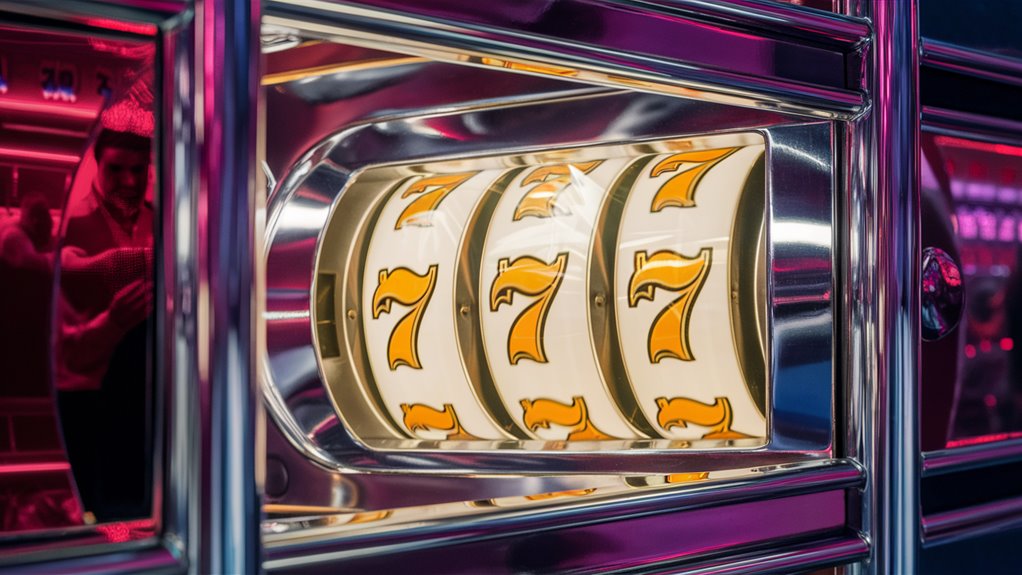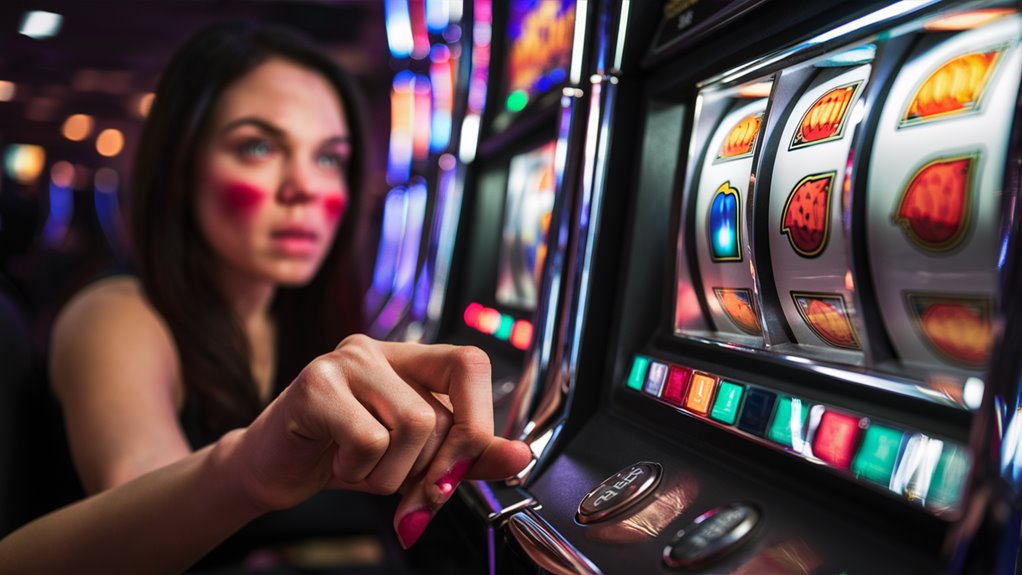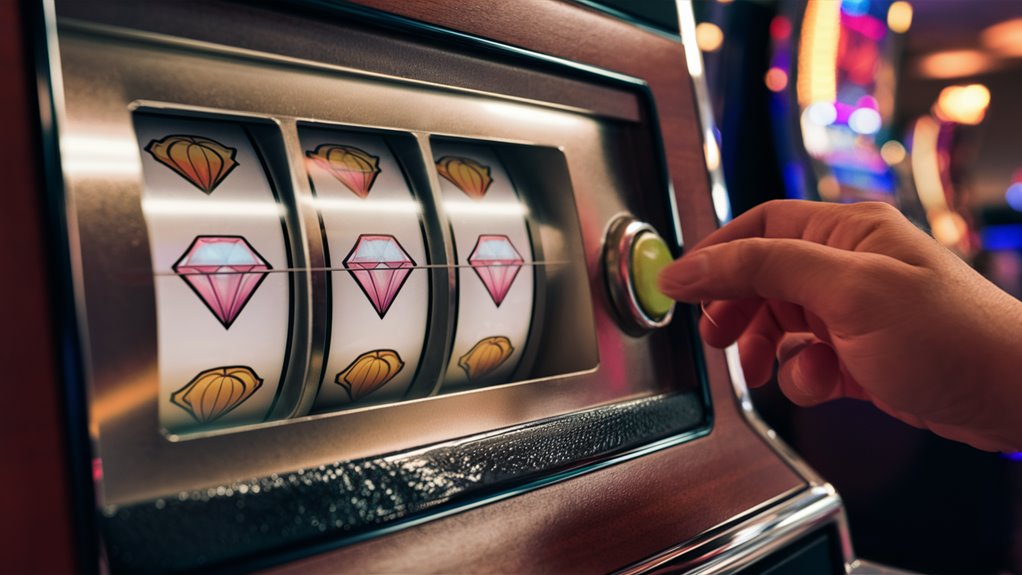
How Slot Machines Can Trick Your Brain

How Dopamine Works
Near-miss events in slot machines can set off strong brain reactions that feel like win reactions. When a player nearly wins, their brain lets out dopamine in ways like it does when they really do win. This brain reaction makes people want to keep playing, even when they are losing.
How Slots Are Made
The game makers build slot machine designs to have near-misses happen a set amount of the time – about 12-14% of spins. They plan it to keep players playing by using:
- Where they put symbols 카지노사이트 추천
- Timed sounds and lights
- Paying out wins just right
How It Affects Brains and Makes People Addicted
Parts of the brain like the ventral striatum and the nucleus accumbens light up a lot when you play slot games. These parts of the brain can’t tell well between near-misses and real wins, which leads to:
- Playing and betting more
- Faster gameplay
- More dopamine being let out
What We Know About Slot Addiction
Studies show that slot machine addiction comes from the smart mix of:
- Brain chemical reactions
- How the game works
- Right timing of rewards
- Plenty of sights and sounds
Getting this, we start to see why slots are some of the most addicting games out there.
The Mind Games of Slot Machines
Our Brain on Near Misses
Near-miss feelings in gambling make our brains act like we’ve won. The brain’s happy center lets out dopamine, which makes us want more.
When near misses happen, the ventral striatum and insula areas turn on a lot, spots that deal with rewards and choices.
How Slots Keep Us Coming Back
Slot machine designs mean to put in near misses in a set plan, usually 12-14% of spins. The right ratio keeps us playing and coming back.
The design uses counterfactual thinking, a type of thought where players think about how close they were to winning, not the loss itself.
What Happens to How We Act
Near misses make big changes in how we gamble. Players often bet more and play faster after near-misses.
This happens because the brain looks at these close calls as moments where we almost had it, even though winning is just by chance.
This effect can make the game loop go on, even though the real chance of winning stays the same.
Important Points:
- Dopamine works like winning
- Near-misses happen often (12-14%)
- Better engagement through brain tricks
- More betting after near-misses
- Brain spots light up a lot
Brain Science and Gambling: The Lowdown on Addiction

Dopamine’s Part in Gambling
Dopamine, the main happy chemical in our brain, pushes gambling habits.
When gamblers win, especially at slots, the brain lets go a lot of dopamine, giving strong happy and excited feelings that make you want to bet more.
Brain Reward Roads and How Games Work
Our brain’s reward roads react the same to real and close-call rewards in gambling.
The nucleus accumbens, a key part, wakes up during each bet, letting out dopamine not just for wins but also when you expect something might happen. This matches up perfectly with the random reward plan of modern slots.
Long Run Changes in Our Gambling Brains
Chemical Changes
Long time gambling changes our brain’s make-up, especially how dopamine links work. This new set-up means you need riskier bets to feel the same way, creating a loop of more and more gambling.
Changes in Mind Control
The front part of the brain, which helps us control actions and urges, isn’t as active during gambling. Lower movement there makes it hard to stop, even as you lose more.
Getting Dopamine’s Role in Slot Machine Addiction
What Happens in Our Brains When We Play Slots
The dopamine patterns when you play slots show clear brain features you don’t see in other gambling forms. Flickerweave Blackjack: Entwining Fleeting Dealer Observations for Splitting Resilience
Brain activity isn’t just high during wins but also in the wait time between pressing the button and seeing what happens. This sets up a strong brain loop that keeps you playing, no matter the outcome.
The Psychology of Almost Winning
Brain scan studies show that dopamine jumps up during both wins and near-misses when you play.
